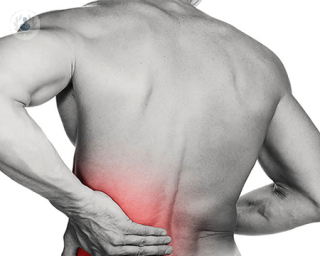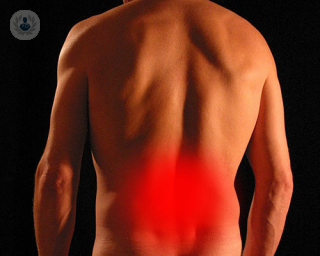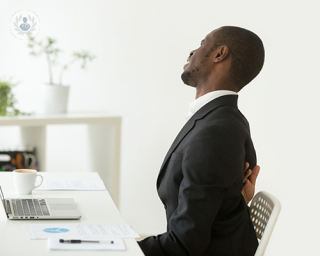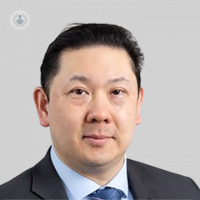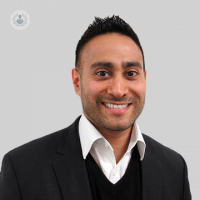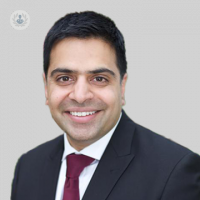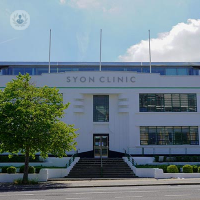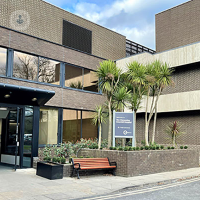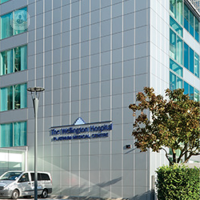Lumbar herniated disc
Mrs Anne Mitchener - Neurosurgery
Created on: 11-13-2012
Updated on: 04-19-2023
Edited by: Carlota Pano
What is lumbar spinal disc herniation?
A spinal disc herniation, herniated disc, or a slipped disc, refers to a condition affecting one of the discs in the spine. Between each vertebrae in the spine, there is a cushion, known as an intervertebral disc.
A tear in the outer, fibrous ring of one these discs can allow the central, jelly-like section of the disc to budge out. This is called a spinal disc herniation, more commonly referred to as a slipped disc.
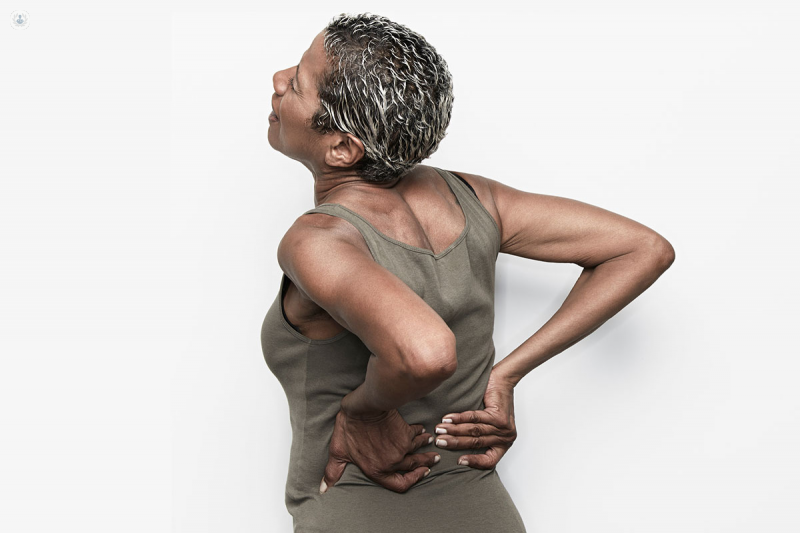
What are the symptoms?
The most common symptom of a lumbar spine herniated disc is back pain.
If the disc presses on surrounding nerves, individuals may experience arm or leg pain, numbness or tingling, and weakness. Intense pain in the buttocks, thighs, and even feet is also common.
In some case, people experience no symptoms at all.
What causes it?
The most common cause is gradual wear-and-tear through ageing. As a person ages, the water content of the intervertebral discs reduces, making them less flexible and more likely to rupture. Additionally, bending, twisting, lifting heavy objects awkwardly, obesity, or an injury or trauma can all put increased strain on the back, and can all very easily lead to lumbar spinal herniated discs.
How can it be prevented?
The risk of a slipped disc can be reduced by maintaining a healthy lifestyle and a healthy weight, and regular exercise is important. When lifting heavy objects, it is also helpful to observe a safe technique to avoid unnecessary strain. Smoking also causes discs to lose flexibility, and giving up may help to reduce the chances of suffering a herniated disc.
What is the treatment?
Most herniated discs will gradually improve, and treatment may just consist of avoiding painful positions, engaging in gentle exercises, as well as taking medication for the pain. Physiotherapy is also commonly used to treat a slipped disc, as well as using exercise plans and massages to treat the injury.
Medications are used to ease the pain and the type used will depend on its severity. Over-the-counter painkillers are used for mild cases, whilst stronger painkillers are prescribed for worse cases. Additionally, anti-inflammatory injections directly into the spine are used to relieve severe pain in the short-term in some cases, and muscle relaxants are also deployed in some cases.
An operation known as a discectomy can be used to cut away part of the disc to release the pressure on the surrounding nerves.
Will surgery be required to treat a slipped disc?
Surgery, either minimally invasive or traditional, will be offered to the patient should he or her not see an improvement in their debilitating symptoms after months of conservative treatment.
What are the main risk factors associated with slipped discs?
There are numerous factors that may increase one's chances of suffering from lumbar spinal disc herniation. The main ones include:
- age
- smoking
- alcohol consumption
- lack of exercise
What conditions can a spinal disc herniation lead to?
A lumbar spinal disc herniation is, in fact, the leading cause of sciatica.

How long does lumbar herniated disc pain generally last?
This, of course, can vary from person to person, but generally speaking, lumbar herniated disc pain does not tend to last longer than six weeks. If pain persists after this period of time, then surgery will be considered as an effective treatment option, as mentioned above.
Where do the majority of herniated discs occur exactly?
The vast majority of herniated discs tend to occur in one's lower lumbar spine.
When is a lumbar spinal disc herniation considered a medical emergency?
Patients should seek medical advice if they notice any of the following:
- painkillers are not having any kind of effect
- persistent pain after a month
- unexplained weight loss
- back swelling
- high temperature
Patients should seek emergency medical attention if they experience any of the following:
- are unable to urinate
- have numbness around the bottom or genitals
- lose feeling in one or both of the legs
- lose control of urination and bowel movements
- have experienced back pain after a serious accident
Which specialists treat lumbar spinal disc herniations?
A general practitioner will be the first line of call. Pain management specialists, as well as specialist spinal surgeons, are also well-equipped and qualified when it comes to treating lumbar spinal disc herniations.

